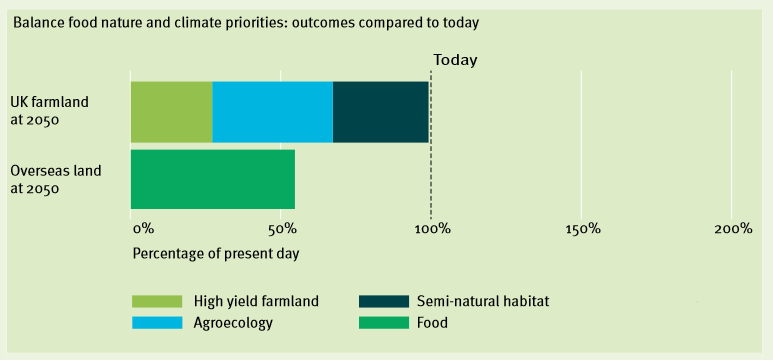Big announcement from @DefraGovUK today on ELM. Perhaps the first significant one in years and on balance a small step in the right direction. What can we take from it? 🧵
First, the good news! the highest value-for-money bit has survived: Landscape Recovery is expanding, if slowly. The first round was FAR more popular than expected, and supporting farmers on 10% of land to do LR-type activity could halve the land system's carbon emissions by 2035.
But the lowest value-for-money bit, SFI, has been made even lower VfM - great thread here on this:
https://twitter.com/AliceGroom2/status/1618519913764900864. The strategic risk is lobbyists think the £ for nothing bits of CAP can continue in ELM. We can't afford that if we want to restore nature and hit net zero.
Why? Let's look at the big picture. If you want to nearly double UK nature, hit net zero, not offshore food production AND increase incomes for the least affluent 2/3 of farmers, our work shows you can!
But most ELM £ must go to nature-friendly farming and habitat creation.
But most ELM £ must go to nature-friendly farming and habitat creation.
Here's how costs and land use looks if you want to do that. For ELM, most of the budget needs to support high value-for-money nature/carbon payments.
This is progressive because low profit farms make way more from nature/carbon payments: 2/3 of farmers are better off.

This is progressive because low profit farms make way more from nature/carbon payments: 2/3 of farmers are better off.


If farm payments end up mostly being deadweight cost, not helping farmers decarbonise or restore nature, ELM collapses into an income support scheme.
In this worst case scenario, the cost of decarbonising our land doubles, our land use overseas rises, and nature declines.

In this worst case scenario, the cost of decarbonising our land doubles, our land use overseas rises, and nature declines.


Today's ELM announcement is moving away from that worst case scenario (hooray!), but only a bit (boo!).
After last year's #attackonnature, we should all be glad for some progress, but we need to go so much faster.
More detail here: green-alliance.org.uk/wp-content/upl…
After last year's #attackonnature, we should all be glad for some progress, but we need to go so much faster.
More detail here: green-alliance.org.uk/wp-content/upl…
• • •
Missing some Tweet in this thread? You can try to
force a refresh








